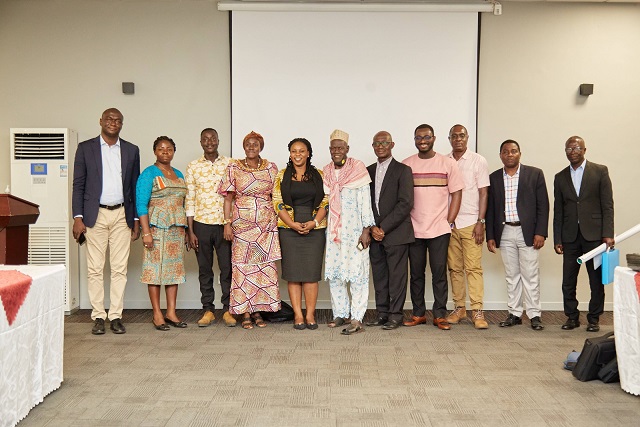Accra, March 16, GNA – USAID through its Feed the Future Innovation Lab for the Reduction of Post-Harvest Loss (PHLIL) has held a stakeholder handover workshop after almost nine years of developing affordable technology solutions to help farmers reduce post-harvest losses and increase productivity. The workshop was to enable the project’s local partners, who had been working with the technologies to scale it up to the next level. The Lab has researched and piloted the introduction of practical technologies for reducing post-harvest losses in commodities such as maize, and cowpea, among others in Ghana.
Two cutting-edge technologies namely, Zero Fly Hermetic (ZFH) storage bag and GrainMate moisture meter were identified for scaling.
The ZFH bag is a deltamethrin-incorporated polypropylene hermetic storage bag that effectively offers protection to stored commodities against insect pests and mycotoxins.
It comprises a single inner liner with an outer deltamethrin-incorporated polypropylene fabric. When in use, the ZFH bag has a life span of two years and is reusable within 2 years. BagCo in Lagos, Nigeria produces ZFH bags.
The GrainMate is a simple moisture meter manufactured with a specification of a probe that can enter a filled bag to measure the moisture level in the middle of the bag, without the possible bias of a hand/bowl-fetched sample from a storage bag. The moisture level is an important required specification before filling ZFH bags with grain.
Sesi Technologies (ST) is a company incorporated by young graduates from Kwame Nkrumah University of Science and Technology, Kumasi and is implementing the scaling of the two post-harvest technologies through commercial distribution.
The ST team was nurtured, trained and supported by PHLIL over 3 years. The GrainMate is assembled in Kumasi, Ghana.
Isaac Sesi, the founder of Sesi technologies, said the meeting of the stakeholders involved in the value chain was to explore ways they could help scale up the important technologies. “So we are hearing from all of the different stakeholders on their experiences in these technologies. We are bringing together everybody that is needed to be able to take these technologies to the next level,” he said. The introduction of the technologies, developing them from the scientific research to engineering to the development all the way to the market in Ghana started as far back as 2014. “The demand and adoption for all of that is taking several years and we are happy with where we are now in that we are really excited about the possibility of scaling this,” Sesi said. Mr Sesi said the achievements had not been without challenges, especially in bringing a new technology to market in a conservative field like agriculture as farmers and other stakeholders were not quick to adopt new technology. “So, it requires a lot of effort and work to introduce these technologies in the different communities that we work in, and to get them to appreciate the efficacy and the importance of these technologies; and how it can improve the quality of the agreements and reduce losses and improve their business as a whole,” he said. He cited funding as another challenge in the process of bringing technologies to the market. Mr Ahmed Kablan, USAID Programme Manager, said the project was to create an enabling environment by identifying the problems of post-harvest losses and developing technologies to solve them. “We have developed a few technologies that are available in the market for the farmers and for the aggregators and small and medium-sized enterprises to try to take and scale up,” he said. He lauded the contribution of the local partners and stakeholders, who have been key to the success of the project.
Mr Kablan said while the project would end in a couple of months, the desire was not to close the door on the technology but to ensure these technologies continue to work.

“This is the legacy of our project and our work not a legacy for the post-harvest loss Innovation Lab only. But the legacy for everyone who has been involved in this project,” he said.
“Everyone who cared about farmers and producers, everyone who cared about improving agriculture productivity and sustainable agriculture productivity, everyone who cared about achieving more efficient agriculture food systems because, at the end of the day, we want to produce sustain what we
produce and use it ……food loss and waste as you know are our huge enemy and a huge gap in our production systems,” Mr Kablan added.
Dr Jagger Harvey, Director Feed the Future Innovation Lab at Kansas State University, said the project aimed to enhance global food security through a reduction in post-harvest losses during storage.
GNA